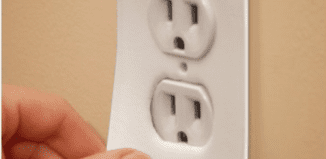In the grips of a heroin epidemic
By Fr. Francis Pizzarelli
Every time a young person dies because of a heroin overdose, I take pause and I ask myself, “What is it going to take to end this horrific epidemic? When are people going to take their heads out of the sand? When will people realize that their voices need to be raised to challenge a government that is broken and misguided and a health care system that is more fixated on finance than on treatment?”
In recent months, every media outlet has done an exposé on the heroin epidemic on Long Island. Each piece has underscored that the epidemic is not getting better — but rather, is getting worse.
The working class person and the poor have few to no options when it comes to residential treatment for addictions; the two treatment options that are free have waiting lists in the double-digit numbers.
The classic insurance company line: “fail at outpatient treatment first and then we’ll pay for a 30-day inpatient treatment program.” Parents who have insurance for outpatient treatment or can afford to pay out-of-pocket are doing this.
A record numbers of heroin and opiate addicts are failing — they are dying! These are senseless deaths that need not happen.
It is unconscionable that insurance companies are allowed to get away with murder!
Parents need to be more vigilant for their children who are trapped in the dysfunction and disorder of addiction and other destructive behaviors. Enabling them is counterproductive and basically harmful, if one is serious about recovery.
Every month, at least two or three families come to see me about their children who are out of control because of drug use. We talk about their son or daughter’s drug history and drug of choice. They ask me what they should do. They ask for recommendations.
When I outline what I think they need to consider, I see panic in their eyes and realize their lack of understanding as to the seriousness of heroin addiction. From my experience as an addictions specialist, most young people between the ages of 18 and 35 need long-term residential treatment, 12 to 18 months, if they have any hope of recovering.
What amazes me is their initial response. I have worked with young people battling heroin addiction for more than 25 years; my training and experience tell me that the average heroin addict needs long-term care if they hope to reclaim their life. After I say that, a growing number of parents begin to make excuses, and minimize the seriousness of their son or daughter’s addiction.
Honestly, these parents are in denial. I further remind them that while their children are in treatment there are no cell phones, no computers and no access to social media. They must be focused on recovery and that is hard work.
Life on a good day is hard work; recovery is even harder when trying to reclaim one’s life. It is a demanding process. It is one day at a time and some days it’s one minute at a time. However, I know change and transformation are possible. I see it firsthand every day, as I witness broken and wounded young men embrace the challenge and the hard work of reclaiming their lives.
As a community, we need to work harder at educating people about addiction and its many faces, and create a stronger community of support, compassion and concern. I am encouraged and inspired every day by our community. It gives me hope that this epidemic one day will end!
Fr. Pizzarelli is the director of Hope House Ministries in Port Jefferson.






